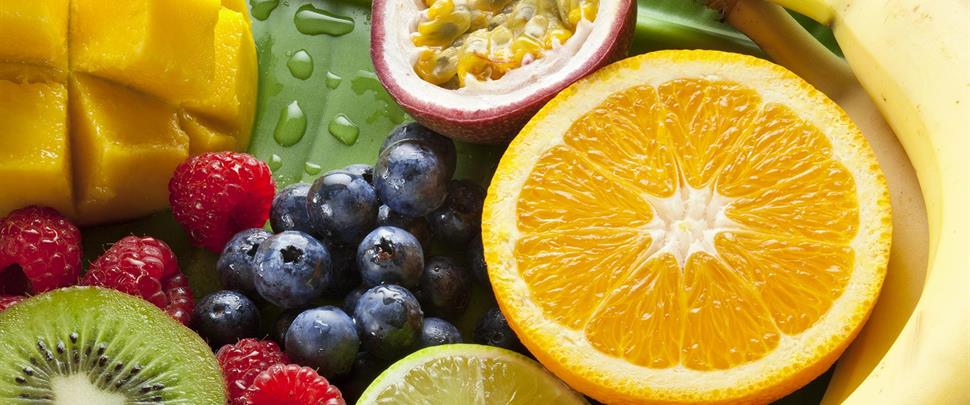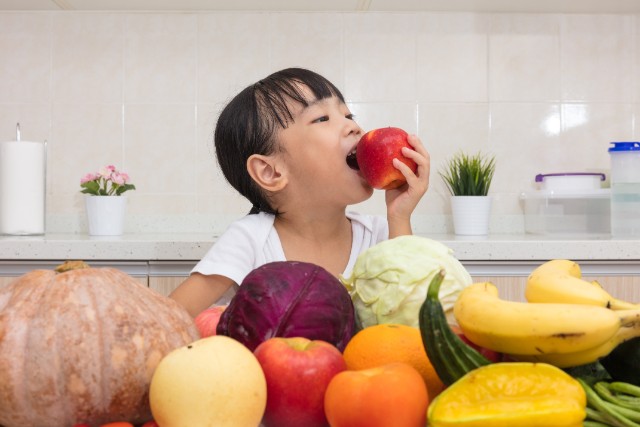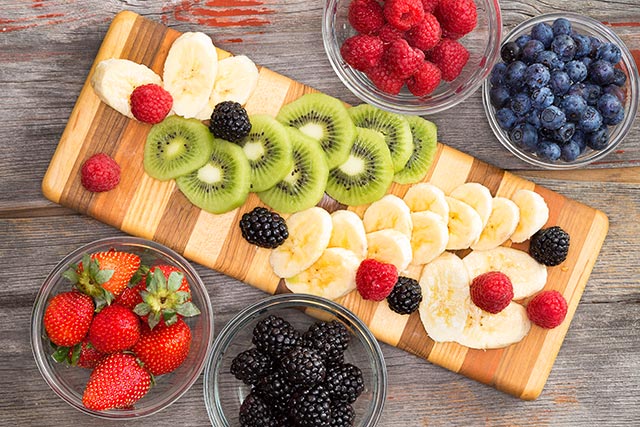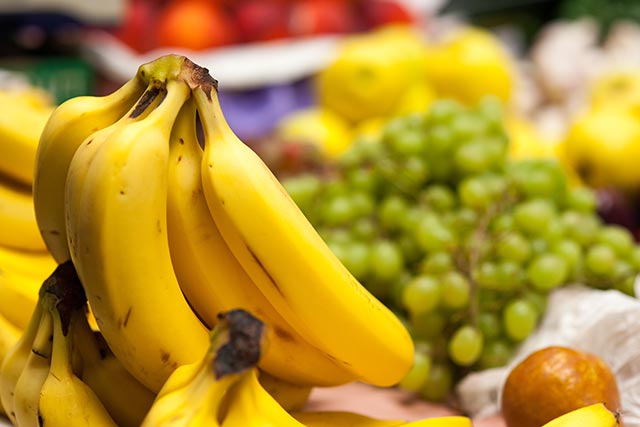“Fun Fruity Facts” by Health Promotion Board, 13 Aug2019, www.healthhub.sg

An Apple a Day…
While the oft-quoted saying “an apple a day keeps the doctor away” may be somewhat oversimplifying it, fruits are definitely healthy snacks that are packed with health benefits as they are naturally low in fat, calories and sodium. In addition, many fruits are rich in fibre which keeps us feeling fuller for longer, preventing us from overeating.
People often think of fruits as a great source of vitamin C, but they are so much more. They are a great source of antioxidants, which are important for disease fighting. They also contain some A, B, E and K vitamins, as well as minerals such as potassium, phosphorous and calcium.
Fruit also provide a rich resource of nutrients that can be seen from their bright colours! The colour, smell and taste of a fruit comes from the plant’s phytochemicals. These plant-chemicals are believed to offer a wide range of health benefits, including those with antioxidants properties, carotenoid from orange-coloured fruits, and anthocyadin from red, blue and purple coloured fruit and vegetables.
Oh, and if you want to keep the doctor away, the magic number is two servings of fruits per day. Now you know.
Related: Fruits and Veggies
Health Benefits of Fruits

If we haven’t yet convinced you to take up your fruit knife and become a fruit advocate, here are some interesting facts about fruit that you can use to interest your friends and family at your next dinner conversation.
Apples — possibly one of the first words in a child’s vocabulary after mama and papa. Besides being a notable source of phytonutrients and antioxidants, apples also work as a natural mouth refresher, cleaning your teeth with each bite, while leaving behind a pleasing aroma in your mouth. Do note that an apple’s flavour and aroma come from fragrance cells found in its skin. So for maximum taste and added fibre, leave that skin on.
Bananas — Bananas contain one of the highest amounts of potassium found among fruit. A medium-sized banana contains around 422mg of potassium or about 10% of the requirement for an average adult. Potassium is an important nutrient for the functioning of muscles. To hasten the ripening process of a banana, place it in a paper bag. You can also put in other fruits such as apples or pears to speed it up. The reason this works is because bananas and other fruits such as apples produce ethylene gas — which helps to trigger ripening. Contrary to popular belief, placing bananas in the fridge does not cause them to go bad faster. While the outer skin does indeed turn black and patchy, the fruit inside stays relatively unaffected and can last for about an additional week, as compared to leaving it outside the refrigerator.
Durians — Durian lovers will be pleased to know that there are many health benefits of consuming this love-it-or-hate-it fruit. The fruit is full of vitamins and minerals, including vitamin B-1 (thiamin) and B-6 (pyridoxine), contributing 31 percent and 24 percent of RDA respectively for adults[1]. It is also a good source of dietary fibre as five seeds provide 16 percent of our dietary fibre requirements. And for those who think that people with high cholesterol should not be eating durians, you might be surprised to know that durians actually contain zero cholesterol, since cholesterol is only found in animal products. Nevertheless, because of its high sugar content, they are relatively rich in calories, (250 kcal over five seeds), so do consume in moderation (not more than four seeds per sitting).

Berries — Among all the fruits, berries contain by far the highest amount of antioxidants. The antioxidant properties of these fruit help to fight off diseases and potentially prevent cell deterioration. Ranked in order of antioxidant content are blueberries, cranberries, blackberries, raspberries and strawberries.
Related: Harness the Goodness of Fruit and Vegetables
Daily Serving of Fruit

Finally, how much fruit should you be eating in a day? The recommended daily consumption is two servings. As a general guideline one serving of fruit looks something like this:
1 small apple, orange, pear or mango (130g)
1 wedge of papaya, pineapple or watermelon (130g)
4 small seeds of durian or jackfruit (80g)
10 grapes or longans (50g)
1 medium banana
1 cup of dried fruit (40g)
Now that you know your fruity facts, go ahead and enjoy a healthy snack that’s not only delicious but also good for you.
References
1. Rudrappa, U. (n.d.). Durian fruit nutrition facts [Website].
Retrieved June 2016 from http://www.nutrition-and-you.com/durian-fruit.html